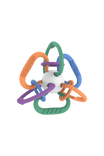Introduction
Breastfeeding, a natural and often beneficial method for nourishing infants, is intertwined with the mental health of new parents in a complex manner. While it can be a source of profound bonding and satisfaction, it also has the potential to trigger significant physical and psychological challenges. This article delves into the intricacies of breastfeeding and mental health, exploring both the positive and negative outcomes, and provides insights on managing these experiences effectively.
Breastfeeding and Emotional Well-being
The Positive Psychological Effects
Breastfeeding offers numerous psychological benefits for both the parent and the child. Among the primary positive effects is the release of oxytocin, often referred to as the "love hormone," which facilitates bonding and can induce a sense of calm and relaxation. For parents, successfully breastfeeding can enhance feelings of competence and self-efficacy in their parenting role, contributing to overall mental wellness.
Key factors contributing to positive mental health outcomes in breastfeeding parents include:
- Exclusive breastfeeding for the first six months.
- Continued breastfeeding for at least one year.
- Adequate milk supply.
- Strong support systems at home and in the workplace.
Additionally, the intimate act of breastfeeding fosters a unique physical and emotional connection, which can mitigate stress and promote affectionate bonds between the parent and the infant.
The Negative Psychological Effects
Conversely, breastfeeding can also precipitate negative mental health experiences. Parents who struggle with breastfeeding may encounter feelings of inadequacy, anxiety, and depression. Factors such as difficulty in milk supply, societal pressure to breastfeed, and the physical demands of breastfeeding can exacerbate these negative emotions.
One specific condition related to breastfeeding is Dysphoric Milk Ejection Reflex (D-MER), characterized by feelings of unhappiness, unease, and frustration that coincide with milk letdown. While these feelings are typically short-lived, they can be distressing for some parents.
Breastfeeding and Postpartum Depression (PPD)
The relationship between breastfeeding and postpartum depression (PPD) is complicated. Research indicates that parents who intended to breastfeed and were able to do so exhibit the lowest rates of PPD. In contrast, those who desired to breastfeed but were unable to tend to experience higher rates of PPD. This correlation underscores the importance of aligning feeding intentions with capabilities to foster better mental health outcomes.
The Role of Support Systems
The presence of robust support systems is crucial in mitigating the mental health challenges associated with breastfeeding. Support from family, friends, and healthcare providers can alleviate the stress and pressure experienced by new parents. Lactation consultants and support groups play a vital role in offering guidance and reassurance, which can significantly enhance the breastfeeding experience and associated mental health.
Practical Strategies for Managing Stress and Anxiety
Managing the stress and anxiety linked to breastfeeding involves adopting various coping strategies and lifestyle adjustments. Some effective measures include:
- Seeking help from lactation consultants and healthcare providers.
- Practicing relaxation techniques such as deep-breathing exercises.
- Prioritizing rest by sleeping when the baby sleeps.
- Engaging in regular physical activity when feasible.
- Establishing a supportive network of family and friends.
Intentional and Baby-Led Weaning
Weaning, whether intentional or baby-led, is another critical phase that can affect mental health. Intentional weaning involves a planned transition away from breastfeeding, often motivated by factors such as persistent nipple pain, low milk supply, or societal pressures. Baby-led weaning, on the other hand, is guided by the infant's developmental readiness and cues, fostering a more gradual and natural cessation of breastfeeding.
Both approaches require careful consideration and support to ensure a smooth transition for both the parent and the baby. Gradual reduction of breastfeeding sessions can help prevent physical discomfort for the parent and ease the emotional adjustment for the baby.
Conclusion
Breastfeeding is a complex, multifaceted experience with significant implications for mental health. While it can enhance bonding and provide psychological benefits, it can also present substantial challenges. Understanding these dynamics and implementing supportive measures are essential for promoting the mental well-being of both the parent and the child. Healthcare providers, lactation consultants, and support networks play pivotal roles in navigating the emotional landscape of breastfeeding, ensuring a positive and healthful experience for all involved.






















Leave a comment
All comments are moderated before being published.
This site is protected by hCaptcha and the hCaptcha Privacy Policy and Terms of Service apply.